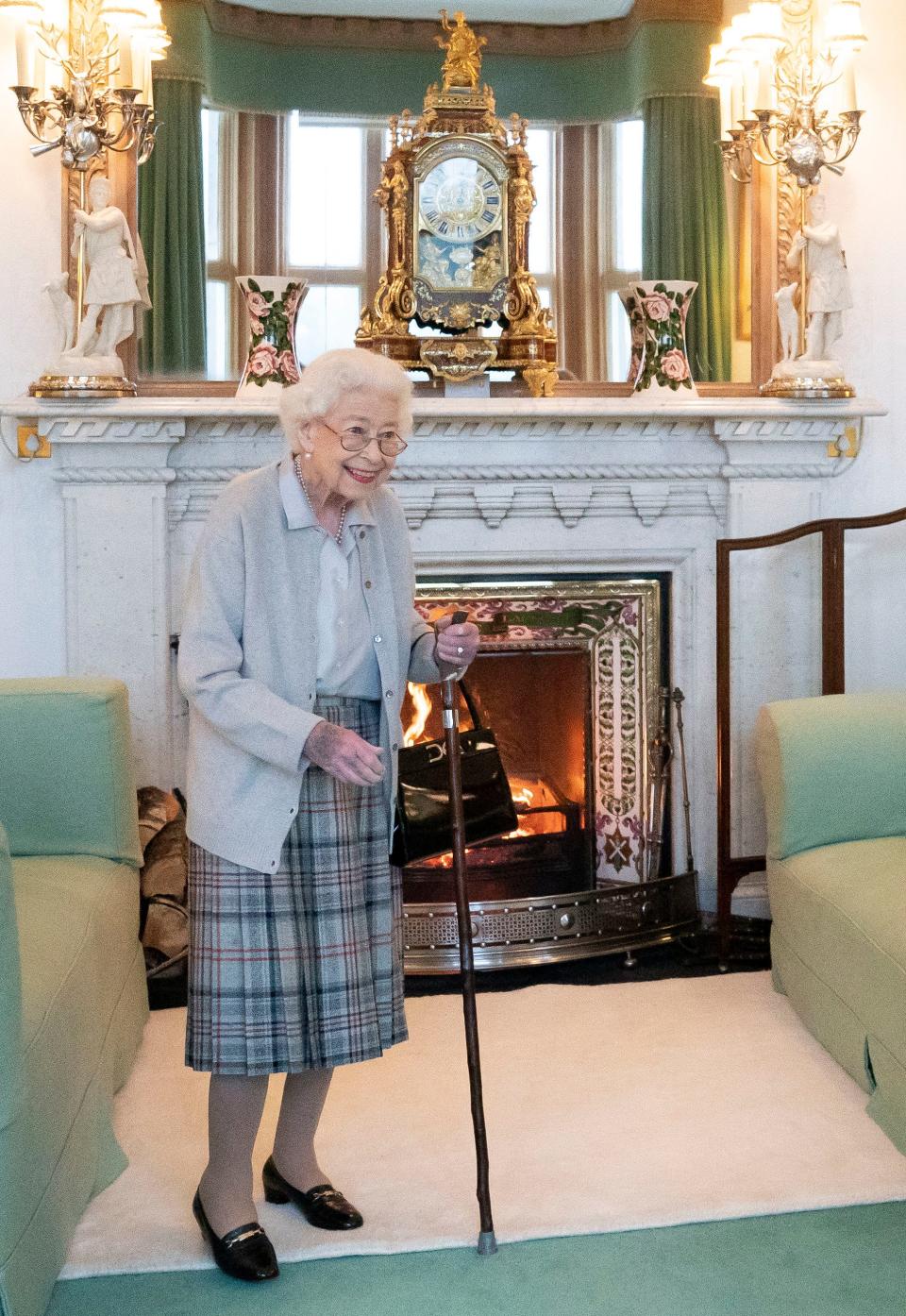Love her or hate her, Queen Elizabeth was pop culture royalty. Why Americans are obsessed
- Oops!Something went wrong.Please try again later.
Like a lot of people in the U.S., I woke Thursday morning to breaking news alerts that Queen Elizabeth II’s doctors were concerned about her medical condition.
It was a vague internet kind of diagnosis, but just specific enough to be alarming.
Soon every major U.S. media outlet, and probably all the minor ones as well, were all over the story.
The New York Times, New York Post and NBC carried live updates on their websites. The Washington Post published a story explaining royal succession. The Hill, the conservative-leaning online political publication, weighed in with a story about Senate Minority Leader Mitch McConnell’s “thoughts and prayers” for the queen. (Thoughts and prayers — the one-size-fits-all meaningless political response for any situation.)
It should be noted that she was still alive at this point.
The story blew up in a huge way, and Queen Elizabeth died later Thursday.
Latest updates: Queen dies 'peacefully' under medical supervision; William, Harry traveled to her side
With all due respect to the queen, what gives with the U.S. media coverage?

What is the American fascination with the British royal family?
I interviewed Colin Firth when he starred in “The King’s Speech” and he seemed mystified by it. He had no particular interest in the royals, he said, and thought Americans had more interest in them than Britons did. Wandering around the internet Thursday morning, it looks like he had a point.
Make no mistake, this is a really big story. Queen Elizabeth was queen for 70 years. That is, as they say, a good run. The U.S. media interest in her health was a reminder of the pop-culture hold the House of Windsor and its denizens have on Americans.
There are a lot of reasons. Intense media coverage leads to more intense media coverage, a sometimes-vicious cycle that seemingly can’t be broken. Media covers the royal family because media covers the royal family. Period.
Certainly the personalities play into it. Princess Diana became a kind of tragic hero, the people’s princess, as they say. She was made for the age she lived in, with celebrity culture elevating to something grander than tabloid magazine coverage (while remaining a staple of it) — a shift she helped motivate.
There is no more contemporary example of this than Oprah Winfrey interviewing Prince Harry and Meghan Markle, Duchess of Sussex, after they stepped away from their royal duties, whatever those might be. It was the typical Oprah interview, with tears and heartfelt admissions and the vague notion that none of it really mattered to anyone outside their small circle.
On the other hand, more than 17 million people watched. So it mattered to someone.
Operation London Bridge: Who succeeds Queen Elizabeth?
People follow the Kardashians, sure. But British royals are the original item
But did it? Not really. The royal family is like sports for people watchers — something ultimately meaningless in your daily life that is fun to become invested in. It’s not all that different from a crazed Red Sox fan who will never set foot in Fenway Park but lives and dies with every game. It’s just kind of fun.
Toss in the glitz and glamor of being extravagantly wealthy and you create an even greater level of interest (for some). They’re rich, they’re famous and no, they are not just like us. If they were, no one would bother.
It’s why people watch the Kardashians (and watch “The Kardashians”) and other American versions of pop-culture royalty. Their lives likely have little in common with those of the people who are obsessed by them. But unless you go broke trying to mimic their look or buy their products, there’s no real harm in following along.
Yet there is still a difference. We are not a nation given to intense moments of historic self-reflection — spend about 15 seconds on Twitter for proof of that. Whew. And not for nothing, this gentle reminder: The U.S. won the war with Britain. Didn’t anyone see “Hamilton?”
But the members of the British royal family are the OG influencers. They blend tradition, history and an American fascination with shiny objects into a can’t-miss combination that the media can’t ignore.
70 years on the throne: Queen Elizabeth's Platinum Jubilee
Reach Goodykoontz at bill.goodykoontz@arizonarepublic.com. Facebook: facebook.com/GoodyOnFilm. Twitter: @goodyk. Subscribe to the weekly movies newsletter.
Subscribe to azcentral.com today. What are you waiting for?
This article originally appeared on Arizona Republic: Queen Elizabeth was American pop culture royalty — like it or not

